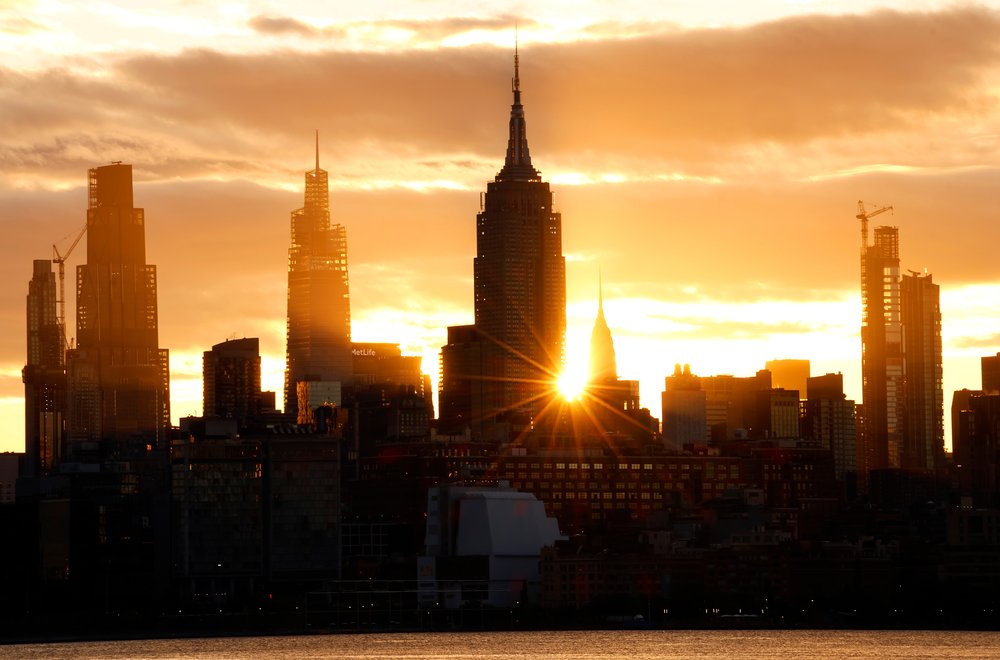A note from the editor: The future of Gothamist
June 11, 2025, 1:55 p.m.
We’re proud of the impact our reporting has on New York City. We’re also realistic. None of this work happens without time, resources and, yes, money.

To our readers:
If you’ve opened this, chances are you’re one of the millions of New Yorkers who rely on Gothamist for original, on-the-ground reporting about what’s happening in America’s most dynamic, chaotic, maddening and magnificent city.
And since you’re a regular reader, you’ve probably noticed we’ve been working harder than ever — burning the candle at both ends and then reusing the wax — to hold local power to account and help make New York City work a little better for all of us who live or work here.
Take our ongoing investigation into institutionalized sexual abuse at Rikers Island, which in May was recognized as a Pulitzer Prize finalist. Or the dozen-plus stories we’ve recently published that sparked government action or prompted policy changes – stories that kept child care centers open, held landlords to account for ruinous fires, helped address the problem of affordable apartments left empty for years, or inspired a city probe into questionable scholarship practices at the Jay-Z-backed music school at Long Island University.
We’re proud of the impact our reporting has on New York City. We’re also realistic. None of this work happens without time, resources and, yes, money.
Even in New York City, media outlets have shrunk or stopped covering local news entirely because, to be blunt, it isn’t as profitable as national news. That’s why WNYC purchased Gothamist in 2018, saving the site by bringing it into nonprofit, public media. Now we have one newsroom that serves New Yorkers on the radio, podcasts and Gothamist.
But that stable vision for the future of nonprofit, local news is starting to blur.
This week Congress is expected to vote on a White House proposal to claw back money it already budgeted for public media through the Corporation for Public Broadcasting, a move that threatens to devastate the nationwide network of local newsrooms like ours. WNYC and our parent organization, New York Public Radio, would lose millions of dollars. While our largest source of revenue comes from WNYC members, these cuts are still significant because local newsrooms operate on incredibly thin margins.
There has always been some opposition to federal funding for public media, but for nearly 60 years it has survived and thrived with bipartisan support from lawmakers representing the diversity of American communities — urban and rural, red and blue. These cuts are being framed as a rebuke of national media, but in practice they’ll hit the reporting that tells you why your train is late, what’s going on with your rent, and who’s making decisions in the City Council while you’re at work.
I’ve been a journalist and editor for more than 25 years, and my job is to bring facts to emotional issues. So here are two: First, Gothamist is free and robust because of public funding and donations from our readers; second, if that support disappears, New Yorkers will lose.
If you find this site useful, if you’ve ever used our reporting to decide how to vote, where to eat, how to navigate congestion pricing, which beach to avoid, or which agency to yell at, now is the time to help.
- Contact your lawmakers: Tell them why public media matters to you.
- Share this message: Spread the word. Forward this note, tweet it or, hey, yell it across your subway car (optional but you know you’ve seen weirder things).
- Become a member: Even a few bucks a month makes a difference.
Local journalism doesn’t just tell the story of our city. It helps shape it and make it stronger. Thanks for reading — and thank you for supporting Gothamist.